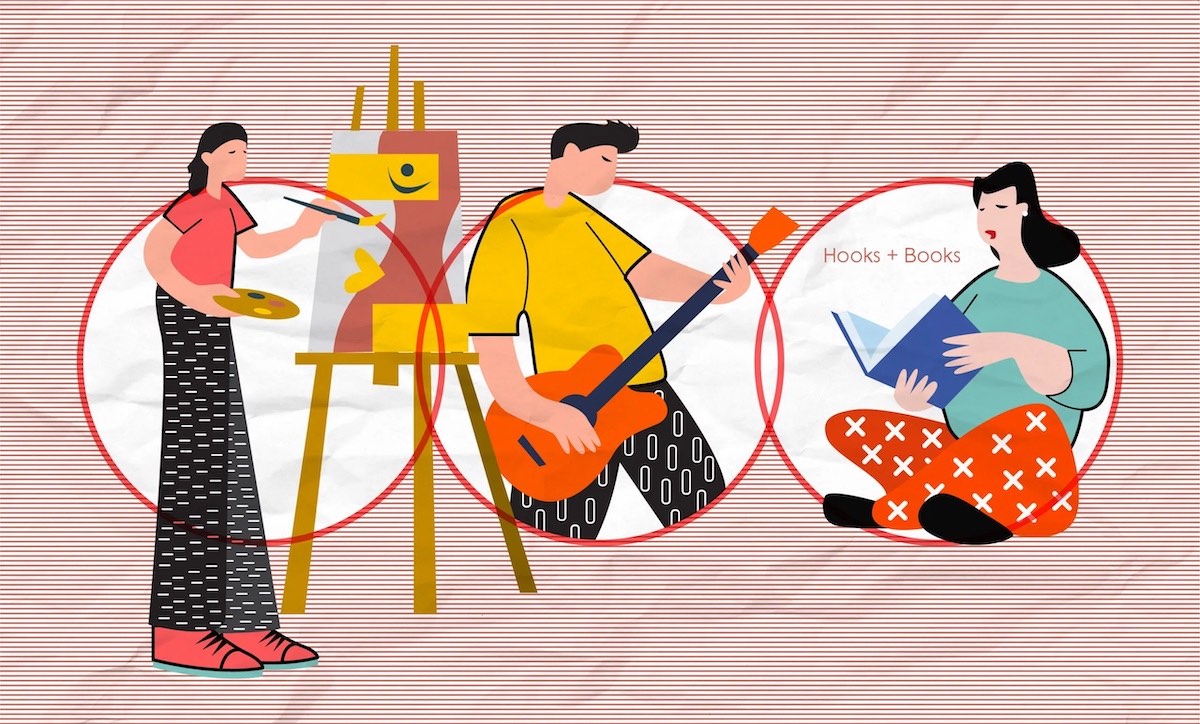In defiance of my own requiem

No, I’m not dying.
A few years back, I already curated my list of funeral songs should the anthropomorphized iteration of death pay me an untimely visit. To clarify, I’m not suffering from an incurable illness and have yet to be diagnosed with any mental health condition—due to my reluctance and, frankly, the financial implications involved with seeking cognitive assessment. I’m also not being edgy at all.
Surely, I’m not the singular soul who dared to accomplish this rather poignant task.
What prompted my then-teenage self to plunge into such melancholia was the thought of hearing songs that did not resonate with me. I do understand that, should this happen, I would not be able to determine whether the songs used had ruined people’s auditory senses or not. It would still be reassuring knowing that they would be hearing the musical preferences I used to enjoy, right? (Un)fortunately, cringe is not the secret to immortality; otherwise, we would be hearing a somewhat ghostly crescendo from choirs of zombies.
In the heart of believing in the undead (or just the great hereafter), I, too, believe that there is a higher power that oversees all. But not a creator—and not necessarily a destroyer—just an omnipresent entity with such a kindly and gracious demeanor that it defies all conventional descriptions found in writings. It wields not a scythe but a conductor’s baton: the force known as death.
I think of death as the grand conductor: ever-attentive and uncomplaining in guiding the lost. And nary a soul would falter in its presence. As compassionate as that may sound, it is still an uninvited guest who perpetually eavesdrops on the living. The type of guest that will begrudgingly muse at the thought of why someone put Paramore, Regine Velasquez, anime soundtracks, an indie film score, a gothic metal riff, classical repertoire, and theater ballads in the same mix.
It was never just a random collection of music—it never is, and it never will be. All that we do is a reflection of our complexities; even the simple task of choosing the songs we play in the present hour. It is our way to match our mood, the ambiance of our microscopic worlds. Each selection conveys even the minuscule nuance of our inner self. But music is full of whimsy; sometimes, it doesn’t evoke the intended emotions because we’ve already associated these melodies and harmonies with other influences.
My sister and I, before we had watched “A Walk To Remember,” used to belt out Mandy Moore’s “Cry” with such triumphant voices. Even to this day, with the context of the movie, we still sing it with huge smiles on our faces, simply because that’s what we used to do before. Meanwhile, my kuya was on a mission to introduce me to iconic bands (both local and international), many of which have become my favorites until now. He was the one who taught me how to download songs and burn CDs.
Another memory is when my cousin and I would sing along to Linkin Park’s “In The End” during quick day drives. We would always stop at “Keep in that mind,” then burst out laughing for not knowing the next lyrics. I can also remember playing a “Naruto: Shippuden” OST with another cousin to boost the morale of our enthusiastic young selves in our many attempts to defeat bosses in games.
As small as they may be, these fragmented moments contribute to my essence. These excerpts complete my music library—making it an audible diary as well. They are an extension of my memory, of my being as they offer a more personal tour of my last remaining remnants in the physical realm.
So, my funeral songs are a remembrance. A requiem. Of late, though, I have come to a grand realization—I am not yet ready for my funeral. I refuse to.
I refuse to let music be a shortcut to the language of forgiveness. I refuse to let these songs be an excuse for my past, both good and bad. I refuse to deny myself the euphoria of discovering new sounds, of being able to watch the artists I’ve been loving since I was young perform live. I refuse to make them wonder why Clair de Lune or that particular harmonica instrumental from “Hunter × Hunter” is part of the playlist. String orchestra, rock band, or just a harp solo—none can fill the void left by a loved one.
I am opposing my original intention as to why I have a setlist of my own funeral songs—that in order for me to truly accept this, I need the people to know that these songs were not only influenced by me being one-third goth, one-third weeb, and one-third theater kid; I have chosen these because of moments and stories I wish to—and will—tell them.
This doesn’t mean that I’ve found my personal antidote to my mind’s stubborn loudness. During the most ungodly of hours, while scrolling through essays and think pieces, melancholic scenarios would still be a recurring visitor. And they are oftentimes led by the grand conductor. But this time, instead of paying no mind, I would embrace this ever-listening entity and tell what I couldn’t—through the funeral songs that I personally curated.
And this curation, for now, is nowhere near being played in mourning but in the symphony of complete defiance.
Ray Mark Samson Espiritu, 26, is a business editor by profession and writes in hopes of immortalizing his byline as a personal pursuit. Currently, he listens to Any Name’s Okay to find solace amidst the noise of everyday life.

















